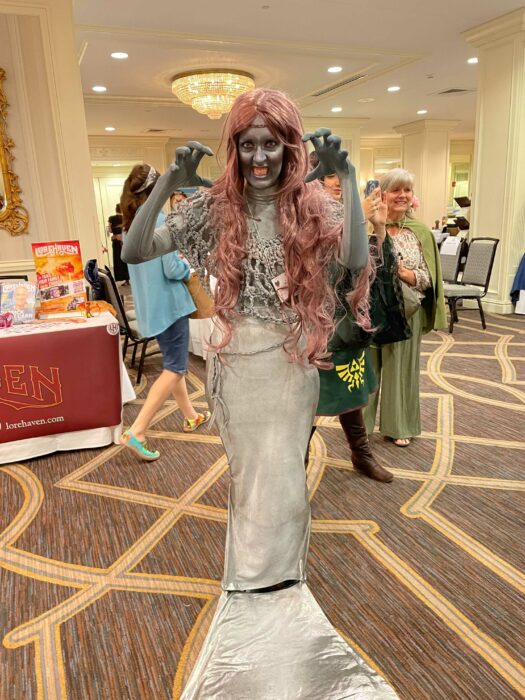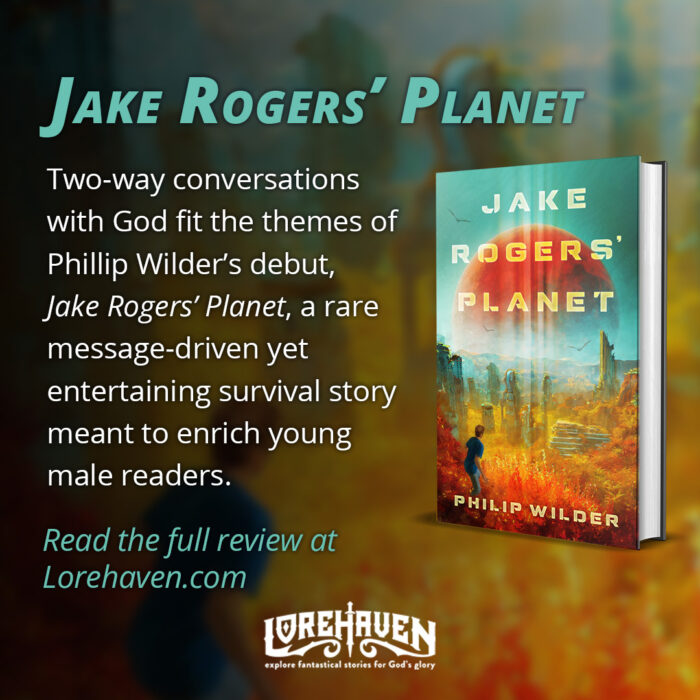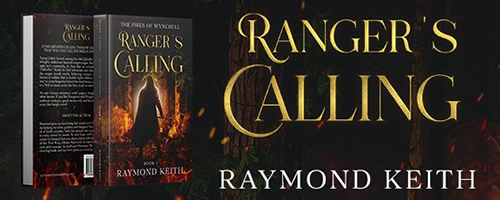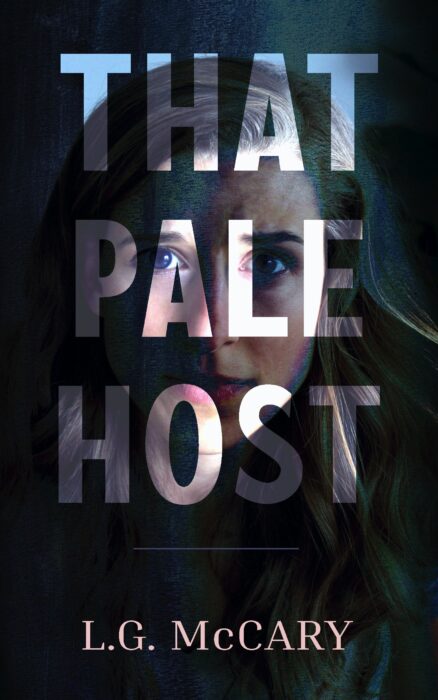82. What If Your Nightmares Came to Life and Haunted Your Day? | That Pale Host with L. G. McCary
Podcast: Play in new window | Download (Duration: 1:13:42 — 69.5MB) | Embed
Episode sponsors
Charlotte Madsen has issues, all the issues, all at once, and getting worse. They include but aren’t limited to: infertility, anxiety, medical trauma, postpartum depression, judgmental friends, a beautiful yet sinful toddler, and—just in time for this spooky season—a ghost that creeps into her already haunted life. We explore the new psychological thriller That Pale Host, unleashing today from novelist and Lorehaven writer L. G. McCary from Monster Ivy. What if your nightmares came to life and haunted your day?

L. G. McCary at Realm Makers 2021
Introducing L. G. McCary
L. G. McCary is an old-school Whovian and a lifelong Trekkie. She has a bachelor’s in psychology which means she knows enough to mess with readers’ heads but not enough to diagnose their problems. She is the wife of an Army chaplain and the homeschooling mom of four rambunctious kids. She writes supernatural and dark science fiction on topics as diverse as artificial intelligence, ghosts, sentient snowmen, and space hotels. Her first novel, That Pale Host, released October 2021 from Monster Ivy Publishing. Her short story, “Rendering,” appears in Havok’s Rebirth anthology.
- Introducing Thriller Novelist and New Lorehaven Writer L. G. McCary, Jan. 2021
- To Shape A Story Is to Shape a Soul, L. G. McCary, Jan. 2021
- That Pale Host at Monster Ivy Publishing
- That Pale Host in the Lorehaven library
- Explore more at LGMcCary.com
- L. G. McCary on Instagram
- L. G. McCary on Facebook
That Pale Host back cover:
Charlotte brings her baby girl home from the hospital to the usual sleep deprivation and worries of a new mom, but something else has changed. Nightmares and moving shadows fill her with dread, and something or someone seems to be watching her.
As her daughter grows, so does Charlotte’s fear. Whoever is watching has a message and will do anything to make her understand.
Even tear her family, her faith, and her self apart.
Top three questions
- How did you discover biblical truth and fantastic stories?
- What images, spectral or otherwise, led you to create That Pale Host?
- What’s next on your journey, with children and/or the chillingly numinous?
Com station
Steven Smith replied to episode 81 about “clean fiction”:
Clean doesn’t have to mean no violence or hard aspects of life. It should be no gratuitous use of sensuality , or positive messages about wrong choices. If you think it takes foul language to be real, real what? I’m tired if all media putting a pro LGBT spin on everything. Adding those types of characters to stories that were never there before. We can acknowledge sine , just not glorify it.
Johanna also shared this about episode 81:
I agree – it’s all about the message and the impression the story leaves with the reader. Fact is, we don’t live in a “clean” world so using that as a setting is a fantasy in itself.
Philip Wallace reminds us that:
Louis L’Amour is a great example of a writer that spoke about immoral things with few words. He rarely used swear words yet the majority of the situations his characters experienced were in a world around violent men who drank hard whiskey, murdered, raped committed violence. The author might let the reader know a character swore a lot but not write the swear words, or the scene of a massacre without pulp fiction details, just enough to convey a message. The same with sex. For example in Jubal Sackett, the main character, gets married. the author wrote (I’m paraphrasing) husband and wife lay together to consummate the wedding. As readers we get it. I don’t know that Louis L’Amour was born-again yet he kept it clean and on message.1
Next on Fantastical Truth
Some years back on Twitter, a novelist shared a strange boast. “Sometimes I lose sight of why I want this whole Being an Author thing,” she said. “It’s easy to get overwhelmed … and forget the whole point of it all. Which is, of course, to wreck you, the reader.” Fascinating. Do we really want books to wreck us? Don’t wrecks injure people? Novelist and Lorehaven writer Marian Jacobs takes a very controversial position against steering story vehicles directly into our souls. She insists we should find stories that don’t hurt us, but help us heal.
- Edited for style. ↩





































Most of my bad dreams are about confusion over half the semester being gone (and I haven’t been in school/college for years) and trying to figure out how I can drop the classes without ruining my grade point. And then my subconscious remembers that I have to be at work, too, and I’m trying to figure out how to drive across the country to make it in time. Also I’m moving into the dorm sometimes, too, while trying to figure out what to do with all this furniture we got from my husband’s family, whom I met years after graduating. Thanks, brain.
More on-topic: I can’t find that there’s a meaningful difference between our minds/emotions and our souls. And isn’t it technically a heresy, to hold such a complete divide between body and soul? Gnosticism or some term I can’t remember offhand?
IDK, “sin” is nearly as useless a word as “biblical.” People at large may have a general idea of what you mean, but there are so many idiosyncratic variations within the connotations, and many of them are contradictory. In many contexts, I see so much throwing around of words like “sin” and “biblical” as little better than attempts at manipulation.
I find it more helpful framing (that I stole from Tumblr reposts) that your feelings are always right to feel (in many cases, you need to FEEL your feelings and repressing them ends up bad), but feelings are not always appropriate, i.e. you don’t get to take it out on other people.
Re: church-back-home syndrome: I think there’s definite value in questioning a value of a church in particular or the church in general. If people are being hurt, then we need to reevaluate the situation. And that triggers a bunch of anti-SJW posturing and partisan angst and social domination posturing and crap.
Because I’m nosy, I’d be interested why Laura’s husband was ousted. Back in my hometown church, the pastor my dad liked was ousted by the Chief Church Lady’s faction. So my dad and mom went to another church. Dad was on the selection committee who chose Richard (maybe some nepotism there because he let me snoop in his notes and heard my opinions [Richard wasn’t my first choice]). I dunno if I even understand the complaints Chief Church Lady (who is unassailable for many reasons, some that I even agree with) had against Richard. At least one other church lady is trying to lure my parents back because she misses the church culture that they had (it was a pretty good church culture, if geriatric, and it was mostly cultivated by the pastor before Richard). But now my hometown church is being pastored by some dork middle-aged businessman who’s taking/taken online bible college courses. It’s probably good I’m not there because I would roast him so bad, you guys, so bad. Richard at least had some idea how to scholarship. I doubt this current good-ol-boy does.
Bonus spoopy tumblr repost: https://www.pinterest.com/pin/611152611941005383/
PS Louis L’Amour was a pen name. I don’t think he was actually French. He was deffo a native-born American.
They already mentioned that it’s fine to question problems in the church or criticize issues that are there, and they blatantly said that people get hurt in the church and the church doesn’t always know how to handle things. When I hear them talk about ‘church back home’ syndrome, it seems that they are moreso trying to point out the unreasonable or toxic reactions that people might have in reaction to their church back home. Like if the person automatically thinks it’s a good idea to just do things the opposite of their church back home, instead of having a nuanced view that makes decisions based on what actually works and what doesn’t. Or, there’s some people that act like all of Christianity or every church is exactly like ‘the church back home’ even when that obviously isn’t true.
It’s good to point out problems that are there and have (reasonable) discussions and debates about them, but that doesn’t mean ignoring times when people have unhealthy reactions to the church too. It’s hard to fix problems if we hammer really hard on one side and are completely forced to ignore the other.
It can certainly be a problem when people run around sticking mental health labels on themselves or each other, and it’s important to get help from mental health professionals when necessary. But we still need to be careful not to put mental health professionals on a pedestal, because they, much like our pastors, are not perfect and still make mistakes.
Misdiagnosis can still happen. Mental health research is humanitys’ best effort to figure out what is going on in our brains, but it doesn’t have all the answers, nor does it always know the best way to act upon those answers. A degree gives someone more information and knowledge, but it doesn’t completely eliminate the person’s biases and flaws, nor does it automatically make them good at their job.
From that standpoint, one could say that the mental health profession and psychology has corruption like the church does. Both these things are good, but there are flawed processes and bad actors that can cause real damage to people, which means that we need to be able to question mental health professionals as we would be able to question our pastors.
With the ‘Wrecking the Reader’ thing, I partly agree with Marian’s point that authors should not try to harm readers, and if a reader dislikes a story or feels like it’s bad for them at that point in their lives, they should stop reading it, at least until they know they can handle it. To an extent this calls for readers to know themselves and take responsibility for their reading choices, which is something I advocate.
I do, however, disagree with some of the criteria she set forth in her follow up article for what kind of ‘dark’ stories are ‘healthy’. A dark story that gives hope or redemption in the end is a good thing to look for, but a story shouldn’t be disqualified just because it lacks that.
To give a example, during my teens I was in a roleplay (not the tabletop kind with dice. I mean the internet based kind where each person writes their character responding to the behavior of the other characters.) And that story was NOT ‘uplifting’. The situation between the characters kept devolving until it ended tragically. Eventually I quit the roleplay when it was at a decent stopping point because it was really ripping my emotions apart. I couldn’t think of where else the story could go either. Everything was much more intense because I was playing a character in the story instead of passively reading something written by another author.
But I don’t regret that experience in the least. Contemplating that situation over the years, I learned so many things that were vital in terms of understanding human nature. Now I’m able to handle situations I would have otherwise failed in. I am not at all saying that everyone has to read dismal stories that lack hope — but it is good to acknowledge that those stories are useful and should be there and available to those that need them.
It’s not about inflicting pain for pain’s sake. It’s about observing, analyzing, and figuring out how to deal with the tougher aspects of existence. The chance to do that through a harrowing story — even one that has a tragic ending — can be a gift, because it can help us avoid problems or prevent us from making terrible mistakes in real life.
Real life won’t coddle us. Although there is hope that things can turn out well in spite of everything, bad decisions tend to yield bad results. I can definitely say that that roleplay ‘wrecked’ me in a sense, but it was something I needed.
There is another type of ‘wrecked’ that can come from a tragic story as well. A sense of catharsis or maybe emotional cleansing that comes after all the bad things in the story. After all that turmoil, the emotional cleansing comes and the reader can come to terms with what happened and be ready to stand up and do something constructive.
When an author says they want to ‘wreck’ the reader, they don’t usually mean they want to damage the reader, so we shouldn’t make such comments worse than they probably are. A lot of times the author means it more in the sense of writing a book that is good enough to connect with the readers and actually mean something to them. They want the audience to actually care when the MC dies, for example. Or, they are trying to form that sense of catharsis I mentioned earlier, or teach a rough but valuable lesson like I got from that roleplay. Or they are speaking to a rougher audience that likes those stories and knows the author isn’t literally trying to hurt them.
So, yes, readers should avoid stories that affect them in a bad way, but a story doesn’t have to have a ‘light at the end of the tunnel’ in order to be good or beneficial.
As a sidenote: A lot of people do not see Job’s story as uplifting, but instead see it as an example of God being unfair. I don’t really fall into either of those camps, but a supposedly uplifting story isn’t going to be uplifting to everyone.